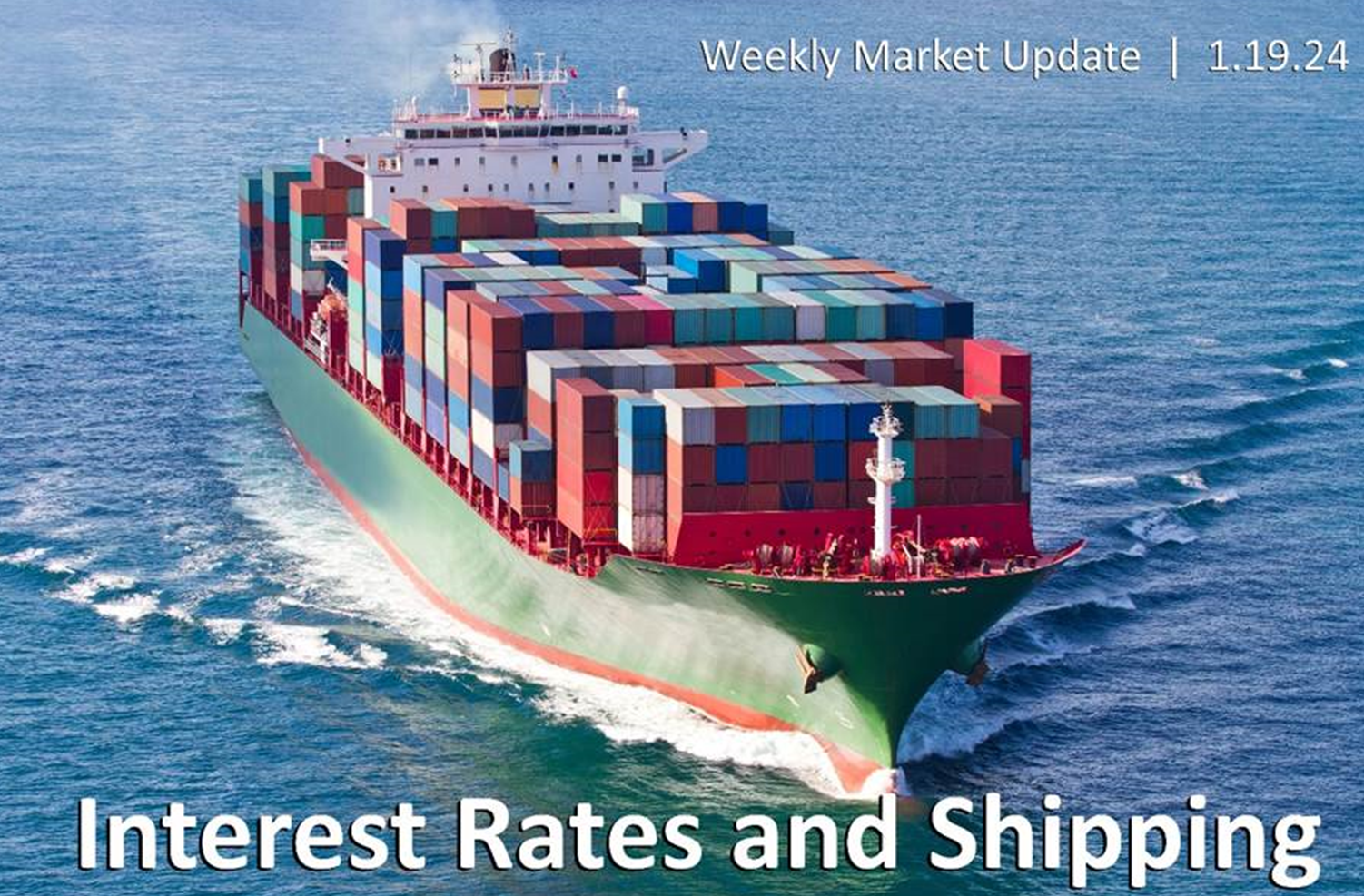According to Mortgage News Daily, mortgage interest rates have risen from their recent low of 6.61% on 12/27/23 to 6.89% APR today. Never ideal when rates rise a little over a quarter of a percent in a few weeks as we’re gearing up for the Spring Homebuyer Season, but overall rates are considerably lower than the 8.03% we hit last October, so that’s good. Now why, if inflation is continuing to fall, are rates reversing course and trending slightly higher? It’s because of the unrest and attacks on shipping in the Middle East.

Nearly 15% of global seaborne trade passes through the Red Sea – including 8% of the global grain trade, 12% of seaborne-traded oil, 8% of the worlds liquefied natural gas, and 30% of global consumer goods. Why in the world does so much stuff go through the Red Sea? If we zoom out a bit, we can see… Many consumer goods manufactured in Europe and bound for East Africa, Asia, or Australia begin their trip in the Mediterranean Sea, pass through the Suez Canal in Egypt, and then make their way through the Red Sea and Gulf of Aden (and vice versa for goods going to Europe).

Herein lies the problem: When ships get to the southern end of the Red Sea and begin their passage through the Bab al-Mandab Strait (between Yemen and Djibouti), they become easy targets for the Houthis in Yemen (who are sympathetic to the Palestinians in Gaza) to attack. Grossly paraphrasing here – by attacking shipping from or to Europe, the Houthis are attacking the economies supporting Israel’s war in Gaza. Now, whether all those economies are or aren’t supporting Israel’s war is up for debate, but at the very least those economies aren’t doing anything to stop Israel’s conquest, which is why the Houthi’s feel justified in attacking those ships.
Shipping through the Red Sea and Gulf of Aden has always been risky. Somali Pirates have been attacking ships for years, but not for political reasons. Somali Pirates generally attack indiscriminately for hopes of achieving a ransom payout (check out this video for a short and interesting recap of how Somali Pirates came to be). Unfortunately, the added attacks from Houthi rebels have made shipping through that passageway SO dangerous now that massive shipping companies like Maersk from Denmark (the world’s second largest shipping company) are now redirecting ships to go west out of the Straight of Gibraltar, then south around the southern tip of Africa (the Cape of Good Hope). This new route adds about 10 days of shipping and more fuel expense, which is translating into skyrocketing shipping costs. For reference, just a couple weeks ago a 40’ container being shipped from Shanghai to the UK would cost about $2,400; today that same container is costing almost $10,000 to ship.
Take it Home
The unrest in the Middle East is causing shipping costs to soar. Unfortunately those added shipping expenses will most likely be passed onto the consumer. So even though inflation is pointing lower, which has been pulling mortgage interest rates lower overall, mortgage interest rates have been rising the last couple weeks on fears that this Middle East shipping crises will lead to higher inflation in the months to come. As always time will tell how this turns out, but fingers crossed things will be resolved world-wide sooner than later.
SOURCE: Kyle Bergquist

 Facebook
Facebook
 X
X
 Pinterest
Pinterest
 Copy Link
Copy Link


